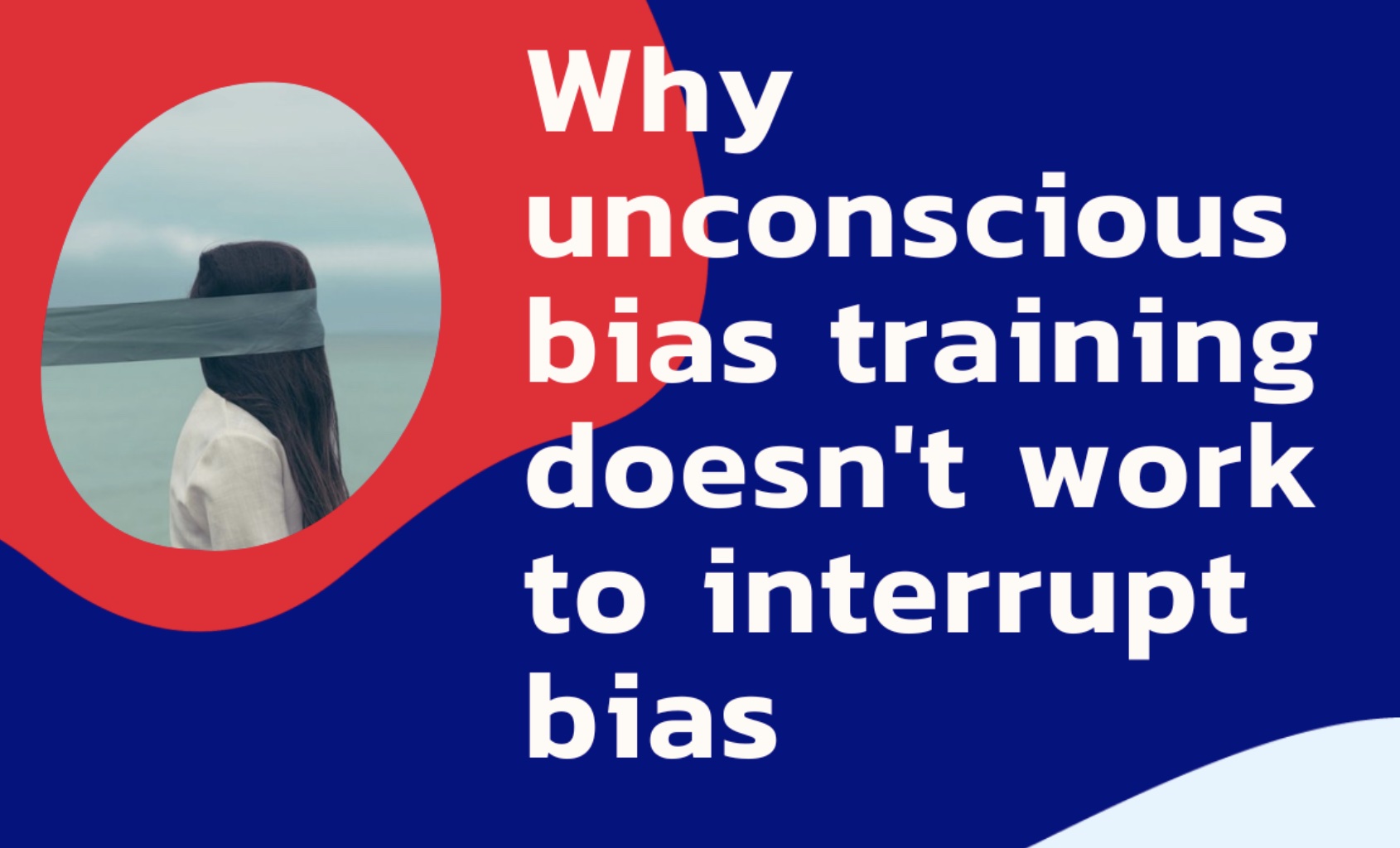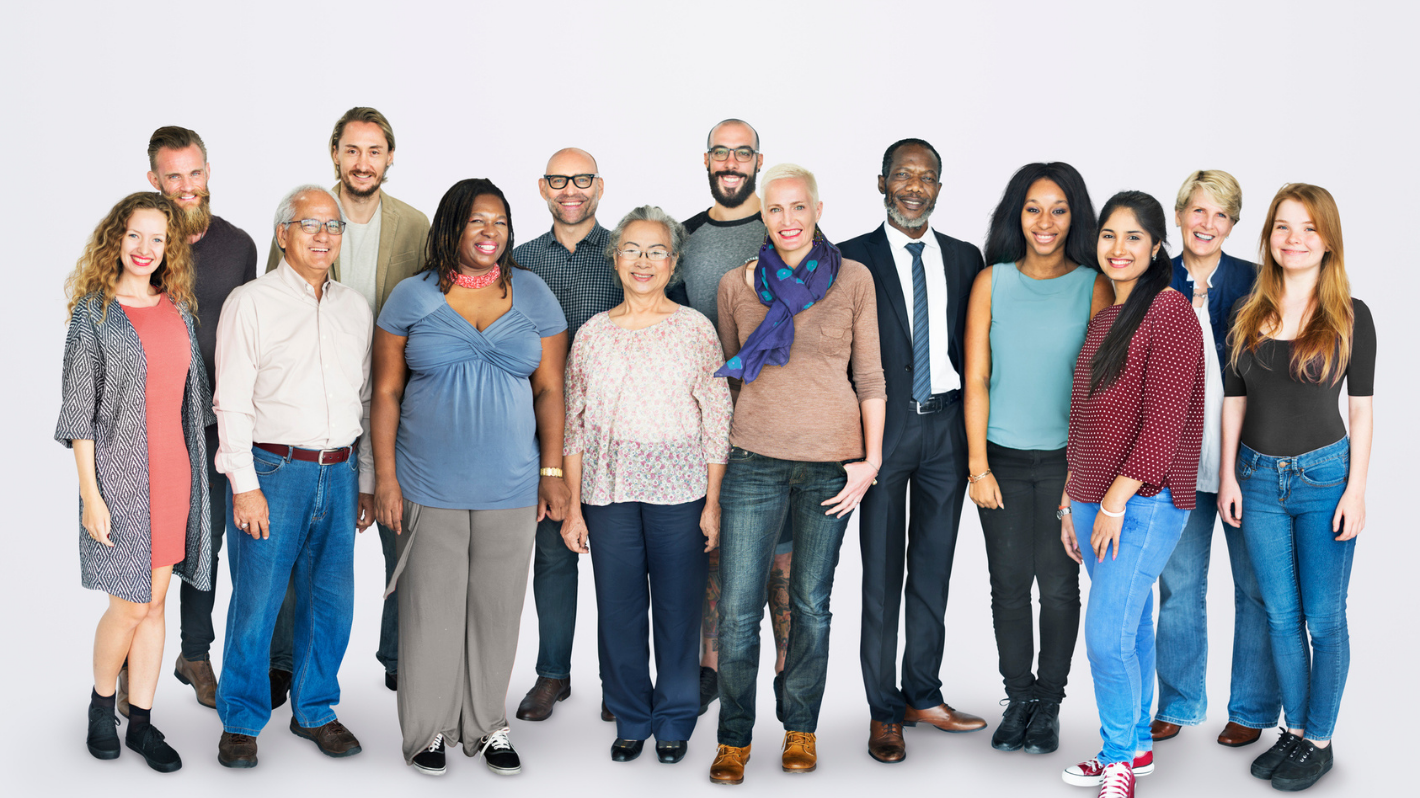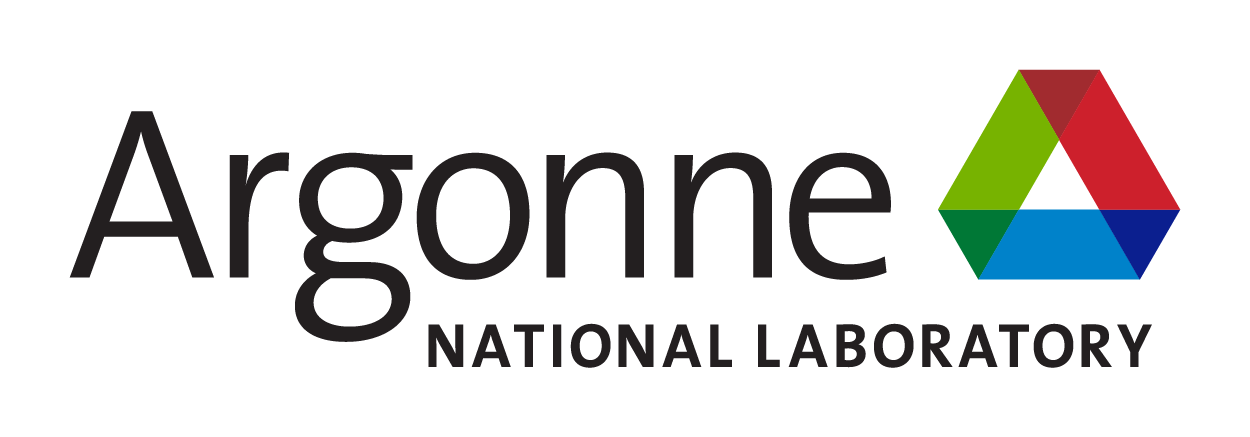December's Voice of PSC : Let's wrap up and spread holiday cheer!- Speakers: Fanny Rodolakis & Becky Sikes
- Topic: Let's wrap up and spread holiday cheer!
- Abstract: Are you hiding Elves on the shelves, building sandmans on the beach or threatening your kids about getting kidnapped by a demonic half-goat monster if they don't behave? Come and share your family's holiday traditions!
We will also give an overview about what we have accomplished this year, and what is coming up for 2023. - Slides in box
November's Voice of PSC : Why unconscious bias training doesn't work to interrupt bias- Speaker: Dr Kristen Liesch, Tidal Equality Co-CEO & Co-Founder .
- Topic: Why unconscious bias training doesn't work to interrupt bias
Abstract: Do you understand the roots of unconscious bias training and why it's ineffective in overcoming bias? Have you heard of the intention-action gap that prevents us all from acting on unconscious bias and other diversity trainings? Attend this informative session where Dr. Kristen Liesch helps us understand what research and practice show are effective measures when it comes to interrupting bias and how we can put them into play to transform our day-to-day work and decision-making for greater equity and inclusive innovation. - Tidal Equality's White Paper Features of effective equity interventions.
- For anyone interested in learning the Equity Sequence® practice, email Tidal Equality at hello@tidalequality.com with SUBJECT: Argonne for free access.
- To learn more about the Equity Sequence®, you can do so HERE.
- Recording: audio, video.mp4 or video.vtt, closed caption.
Argonne Cultural Fair: Let’s celebrate!- Come showcase and share the best of your culture with your lab colleagues: through our individual cultures and family traditions, we bring different perspectives that help inform our understanding of the world and the way it works. The cultural fair seeks to put these differences on display for the Argonne community so that we may both celebrate and learn together.
- Who would want to miss Mexican pastries, French crêpes and more? Come out and experience the different cultures of Argonne employees! The fair will includes tastings, artifacts, photos, and a variety of music.
- The Argonne Cultural Fair is scheduled on October 12th from 11:30AM to 1:30PM at the Cafeteria
- Find all the infos, recipes and resources shared here.
October's Voice of PSC : APS-UCF Physics Bridge ProgramSeptember's Voice of PSC : Generational DiversityDisability Inclusion Matters: Inclusion & Allyship in the Workplace“I wish for a world that views disability, mental or physical, not as a hindrance but as unique attributes that can be seen as powerful assets if given the right opportunities.” – Oliver Sacks
- Together with the Cerebral Palsy Foundation the PSC DEIA Council hosted a "Disability Inclusion Matters" webinar at 1pm on Monday, August 29th.
- Recording is available here to all Argonne employees until October 1st, 2022.
- Resources:
- Just Say Hi! - CPF's award-winning, disability inclusion, PK-12 school based program, visit:
- Email Debbie Fink at: debbie.fink@yourcpf.org
- Argonne Backs Listens and Educates for Disabilities (ABLED) Employee Resource Group: abled@anl.gov
- Lime Connect: the largest network of high-potential university students and professionals - including veterans - who have disabilities in the world.
- Job Accommodation Network: askjan.org - to answer your questions about workplace accommodations and Americans with Disability Acts
- Access Pass: A free, lifetime pass - available to U.S. citizens or permanent residents of the United States that have been medically determined to have a permanent disability (does not have to be a 100% disability) - that provides admittance to more than 2,000 recreation sites managed by five Federal agencies.
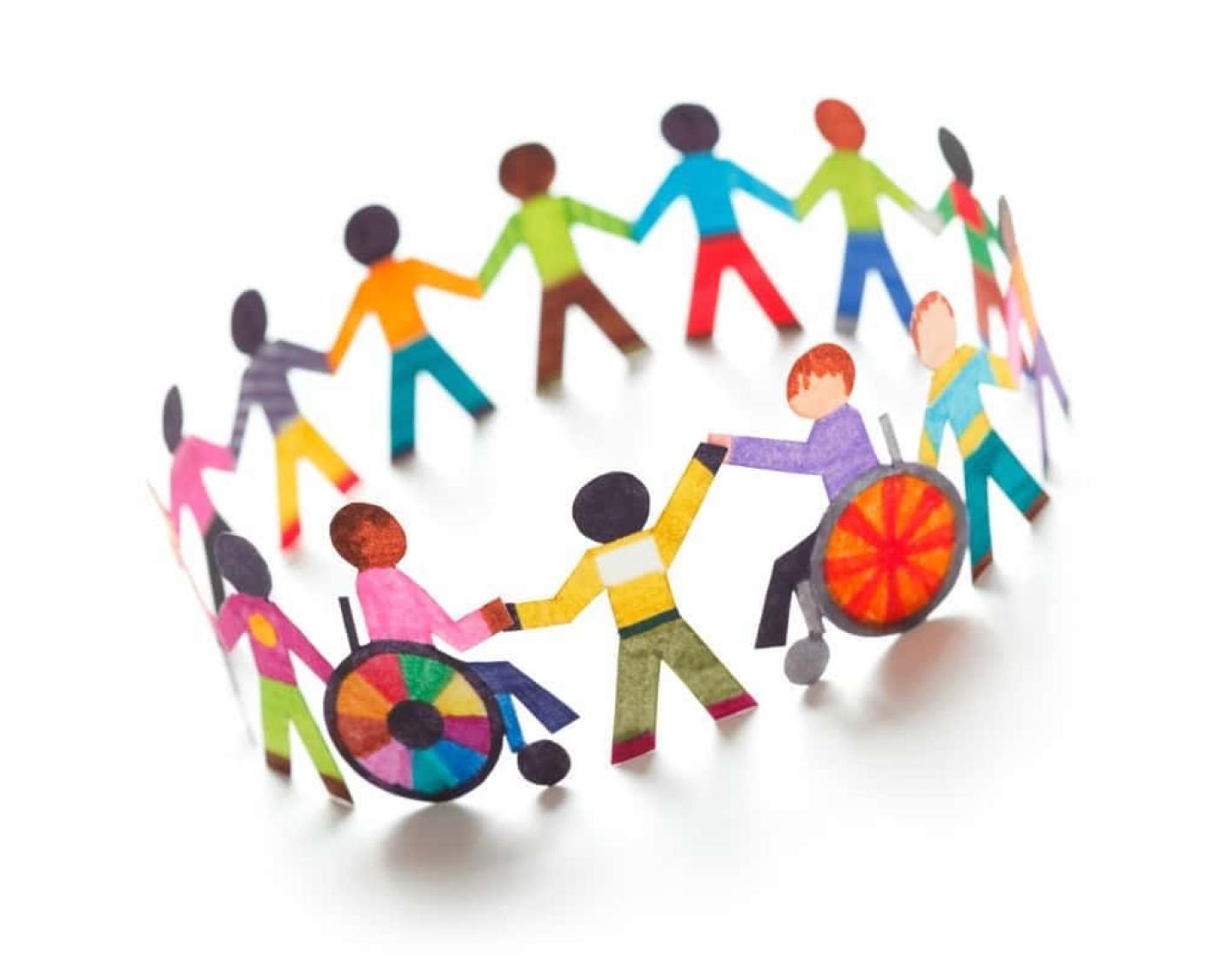 August's Voice of PSC : Microaggression and Micro-affirmationJuly's Voice of PSC : Argonne's Mentorship Program- Presented by Tina Henne (ALI) - Early Career Development Lead
- The Argonne Mentoring Program promotes learning and development by facilitating connections between mentors and mentees. Our mentoring framework emphasizes support for participants so that mentors and mentees will forge valuable partnerships and realize the benefits of mentoring in their professional and personal lives. Mentors and mentees will have the tools and resources needed to have meaningful mentoring experiences to achieve their learning goals together
- Schedule for the 2022 Mentoring Program:
- Mentor enrollment: June 27–July 11
- Mentee enrollment: July 18–August 1
- Mentor/Mentee pairs notified: August 15
- Argonne Mentoring Program Orientation: Completed by August 31
- Mentorship period concludes: February 2023
- Learn More:
- Access the Informational Session recording and presentation slide deck on MyArgonne!
- Visit the Argonne Mentoring Program page on MyArgonne.
- Submit inquiries to mentoring@anl.gov.
June's Voice of PSC : LGBTQ+ Etiquette and Common Bloopers“The only real mistake is the one from which we learn nothing.” – Henry Ford
- Presented by Jeannie Gainsburg - Savvy Ally Action
- Jeannie Gainsburg is an award-winning educational trainer and consultant in the field of LGBTQ+ inclusion and effective allyship. Formerly the Education Director at the Out Alliance in Rochester, N.Y., she is now the founder of Savvy Ally Action and author of the book, The Savvy Ally: A Guide for Becoming a Skilled LGBTQ+ Advocate.
- Visit her website and download free ally goodies at: www.savvyallyaction.com, and subscribe to never miss Jeannie's 3-minute monthly video with savvy ally tips (only one email a month!)
- Meeting recording: video or audio.
- Videos and other resources:
Relax! It’s Not about Sex: - One of the biggest stumbling blocks to LGBTQ+ inclusion in workplaces is the misunderstanding that conversations will be about sex. People bring their orientations to work, not their sexual behaviors. Being out in the workplace is about bringing family members to an office party or putting a photo of a partner on a desk. It’s not about discussing with coworkers what we do in the bedroom or sharing a great new sexual position we just discovered.
Growing Pains are Common:- Diversity and inclusion efforts are sure to make some employees uncomfortable.
- People who have never had to hide who they are at work may not understand why things can’t remain the way they have always been. They may feel that these diversity efforts are violating their rights and beliefs. Having respectful conversations with coworkers about these diversity efforts and allowing people to share their fears and concerns are terrific tasks for an ally.
- Listen (“Tell me more about how you’re feeling”), connect (“I’ve been confused by a lot of this stuff, too”), reassure (“Please know that no one is asking you to change your beliefs”), and share:
These efforts are happening so everyone can feel safe and included at work
Four Best Practices for Ally Action in the Workplace & Respectful Communication:- Ungender language. Using ungendered language is a great way to indicate to a client or coworker that you understand that not everyone is straight and cisgender (i.e., not transgender), and that you are open to hearing about them and their loved ones. Use spouse or partner instead of husband or wife. Use they instead of he or she if you are unsure of gender.
 - Mirror terms. One of the simplest and most effective ways to be respectful with our language is to mirror the terms that people use for themselves and for their loved ones. If a coworker tells you that she saw a great movie with her wife, then you have just received valuable information for being respectful. You should now switch from your previous ungendered term of partner to wife.
- Ask everyone how you should refer to them. Regardless of whether someone is part of the LGBTQ+ communities or not, asking everyone how they would like to be addressed is a great way to make all people feel comfortable and respected. Consider offering your information first. For example, “Hi. I’m Beatrice Johnson. Please call me Bea. My pronouns are she, her, and hers.”
- Visibly indicate your support. Showing visible support for the LGBTQ+ communities saves lives. Create a safer and more welcoming workplace by wearing a rainbow button or hanging a rainbow sign that says, “All Families Welcome Here.” Keep an LGBTQ+ magazine in your lobby or waiting area. Add your pronouns to your name tag, desk nameplate, and/or email signature. Attend a Safe Zone or Safe Space training and proudly display the sticker you earn!
For those of us who always have the correct pronouns used for us it’s easy to be oblivious to their importance, but pronouns are important to us all!
Four Best Practices for Ally Advocacy in the Workplace:- Advocate for professional development. Let your administration know that mandatory LGBTQ+ awareness and inclusion trainings should be included in your workplace diversity efforts.
- Support ungendered spaces and policies. Educate others on the importance of ungendered facilities and policies. Give gendered, single-stall restrooms an upgrade with a new all-gender restroom sign. When buildings are being renovated, advocate for the creation of ungendered facilities. Allow people to use facilities that align with their gender identity. Advocate for an ungendered dress code and ungendered workplace social activities.
- Educate on the need for inclusive forms and office announcements. Paper and online forms can be extremely limiting and frustrating for LGBTQ+ clients and employees. Think long and hard about what you actually need to know. Then look at whether the questions on your forms are getting you there. Is your workplace still using the M and F boxes? Time to move on! Check out the YouTube video called “Form Reform: Beyond the M and F Boxes” if you aren’t sure how. Are office announcements inclusive of people who aren’t cisgender and families that aren’t heteronormative?
- Ensure that non-discrimination policies are updated and inclusive. Workplace non-discrimination policies should include sexual orientation, gender identity, and gender expression. Statements of inclusion should be posted in highly visible areas at your workplace and added to your service literature
May's Voice of PSC : Autism Spectrum Disorder"If you know one person with autism, you know one person with autism"
- Presented by John Quintana (PSC) & Stephanie D’Angelo (ESHQ)
- Stephanie talked about the statistics and numbers around Autism with a Medical Overview, then shared about her and her daughter’s experience.
- John shared about his boys and their experience attending the inclusion program at Cherry Preschool in Evanston (featured in the first video, Possibilities)
- John and Stephanie are not autism experts. They are just sharing their experiences and stories.
- Meeting slides: here
- Videos and other resources shared:
- ABLED hosts 2 support groups:
- Mental Health and Wellness Peer Support Group: every 2nd Thursday of the month, 12PM (Join on Teams).
- Parenting on the Spectrum Support Group: every 3rd Wednesday of the month, 12PM (Join on Teams)
- Below is a recap from the discussion.
Medical overview: - A biologically based neurodevelopmental disorder characterized by persistent deficits in social communication and social interaction, and restricted, repetitive patterns of behavior, interests, and activities.
- Autism Spectrum Disorder is the term used by DSM-5 (United States)
- Pervasive developmental disorder (PDD) is the term used by WHO (push to change to ASD in 2022).
- Previous or other names include childhood disintegrative disorder, Asperger syndrome, Autistic disorder
- Varying degrees of impairment and to know one person with Autism is to know one person with Autism.
Autism Spectrum Disorder FAQ:- In 2021, the CDC reported that approximately 1 in 44 children in the U.S. is diagnosed with an autism spectrum disorder (ASD), according to 2018 data.
- 1 in 27 boys identified with autism
- 1 in 116 girls identified with autism
- Boys are four times more likely to be diagnosed with autism than girls.
- Most children were still being diagnosed after age 4, though autism can be reliably diagnosed as early as age 2.
- Autism affects all ethnic and socioeconomic groups.
- Minority groups tend to be diagnosed later and less often.
- Early intervention affords the best opportunity to support healthy development and deliver benefits across the lifespan.
“What would happen if the autism gene was eliminated from the gene pool? You would have a bunch of people standing around in a cave, chatting and socializing and not getting anything done.”- Temple Grandin
Co-occurring intellectual impairment often accounts for the differences in levels of severity:- Level 1 (Requiring support)
- Social Communication Interaction: difficulty initiating social interactions, decreased interest in social interactions, failure in turn-taking in conversation, difficult time with nonverbal communication.
- Repetitive/Restricted Behavior: difficulty switching between activities, independence limited by problems with organization and planning (perseverative interest).
- Level 2 (Requiring substantial support)
- Social Communication Interaction: Marked deficits in communication; impairments apparent even with supports.
- Repetitive/Restricted Behavior: obvious to casual observer; behaviors interfere with function in variety of settings.
- Level 3 (Requiring very substantial support)
- Social Communication Interaction: Severe impairments in functioning; nonexistent communication or only physical gestures
- Repetitive/Restrictive Behavior: Behaviors markedly interfere with function in all spheres; extreme difficulty coping with change.
Things to consider:- Autistic people are whole people. There is nothing missing, attributes are just expressed to a higher or lesser degree than others.
- ”If you know one person who is autistic, you know one person who is autistic”. Autistic people are as varied as everyone else.
- Stereotypes are inaccurate. For example, our children seek meaningful connection with others. It varies on how it is expressed.
- There is no obvious “right” path for any individual child. Every family and their situation is different and needs to make its own choices.
- John and Stephanie are not autism experts. They are just sharing their experiences and stories.
One take home we have is that inclusion is intentional and personal. One person can have tremendous impact.
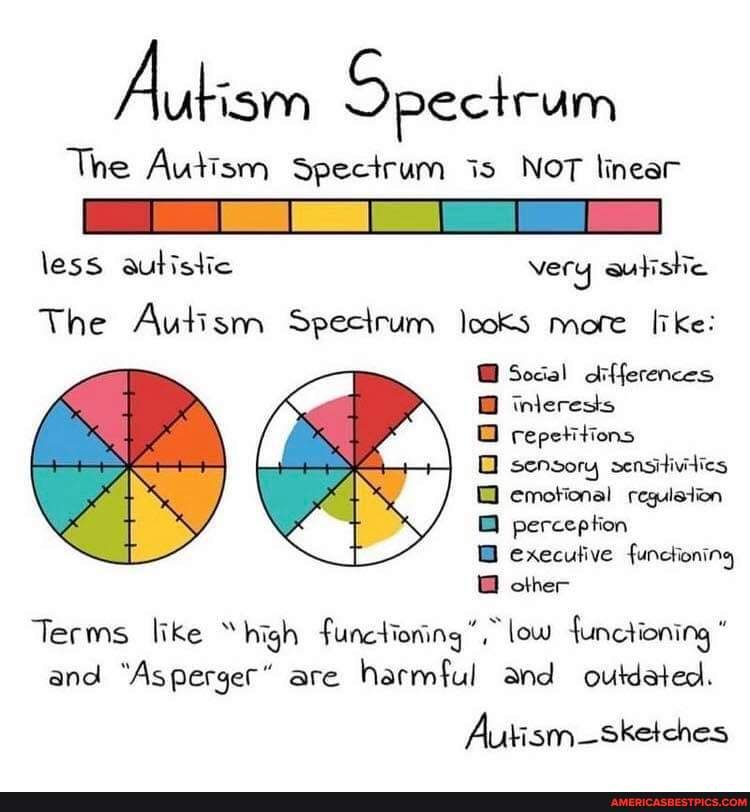 April's Voice of PSC : Mental Health"Not every day is good, but there is something good in every day"
- Meeting slides here
- Videos shared:
- Below is a recap from the discussion.
The average delay between symptoms onset and treatment is 11 years:- Why so long? leading reasons are 1) stigma, 2) financial, 3) cultural, 4) lack of parity with care (mental vs physical)
- Symptoms can develop insidiously ("boiling frog syndrome"); you don't realize life is not supposed to be so hard, until you get a diagnosis and the right treatment.
- Suicide is the second-leading cause of death among people aged 10-34 in the U.S. and the 10th leading cause of death in the U.S
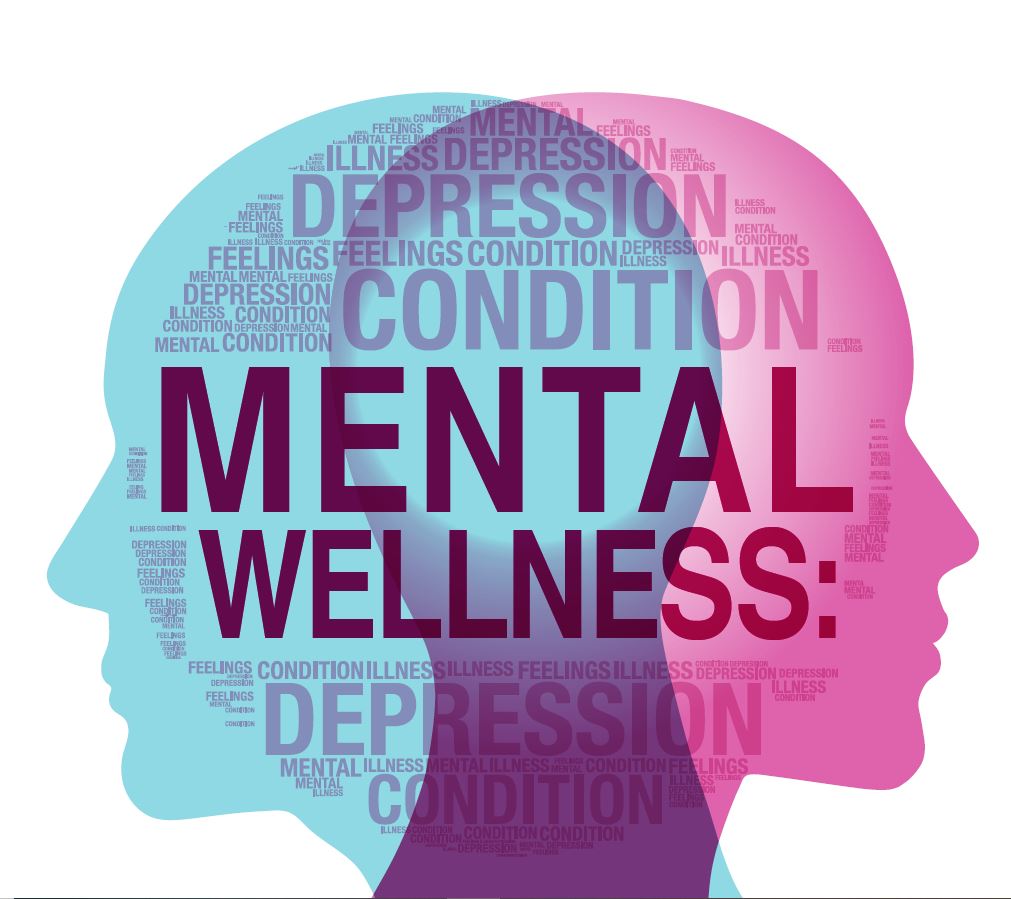 Navigating ways to find help:- Speak to a trusted family member, friend, co-worker or your physician, who can direct you to the right providers (psychiatrist vs therapy…)
- COVID and the democratization of telehealth has made mental health care easier than ever!
- Employee Assistance Program (EAP):
- Available to all employees and their family members
- Provides onsite or virtual therapy
- Helps find adequate care within your network
- Employee Resource Groups (ERGs): ABLED hosts 2 support groups:
- Mental Health and Wellness Peer Support Group: every 2nd Thursday of the month, 12PM (Join on Teams).
- Parenting on the Spectrum Support Group: every 3rd Wednesday of the month, 12PM (Join on Teams)
Break the stigma - It's okay to not be okay! - Talk openly about mental health
- Educate yourself and others
- Choose your words carefully:
Mental Health & children:- Children’s mental health during COVID-19:
- 1 in 7 children has been directly affected by lockdowns
- more than 1.6 billion children have suffered some loss of education
- Do not underestimate and/or dismiss your child's feelings: the reason might not be "a big deal", but the feelings are real.
- Cognitive behavioral therapy (CBT) tips for kids (works for adults too!):
- Anger Iceberg: anger (behavior) is displayed outwardly, but other emotions (feelings) may be hidden beneath the surface; help your child understand what lies underneath.
- Automatic Negative Thoughts (ANTs):
- Your first thought when you have a strong feeling or reaction about something
- Reflex rather than rational thinking
- Learn to recognize the 9 types of ANTs:
- All or nothing (black or white thinking)
- Fortune-telling (I'll fail)
- Mind-reading (they find me stupid)
- Always, never...
- Fight your ANTs back
- When life gives you lemons, add water and sugar: find the glimmer ("sugar") that sweetens up the situation.
March's Voice of PSC: Women's History Month & Cerebral Palsy Awareness MonthFebruary's Voice of PSC: Don't put people in boxes and Black History Month- Please find the meeting slides here.
- Don't put people in boxes (3 min video) - "There is more that brings up together than you think"
- Black History Month:
- Other ressources shared on the chat:
January's Voice of PSC: Bystander effect & bystander intervention (1/20/22)- Please find the meeting slides here.
- What is the bystander effect? Did you know that the greater the number of people present, the less likely people are to help a person in distress? Check out this 3 minutes video about the bystander effect
- What is bystander intervention? You might think that if you ever heard/saw something happening, it would be obvious what to do. But in fact, it's not uncommon for people to be caught off guard. Sometimes it's because the behavior is so outrageous that you can't quite believe what you're hearing/seeing. Or, it happens so fast that you miss an opportunity to say something in the moment. That's why a little forethought and/or training can be helpful : What is bystander intervention? (6 minutes video)
- Hollaback trainings: free trainings on diverse topics including bystander intervention:
|

